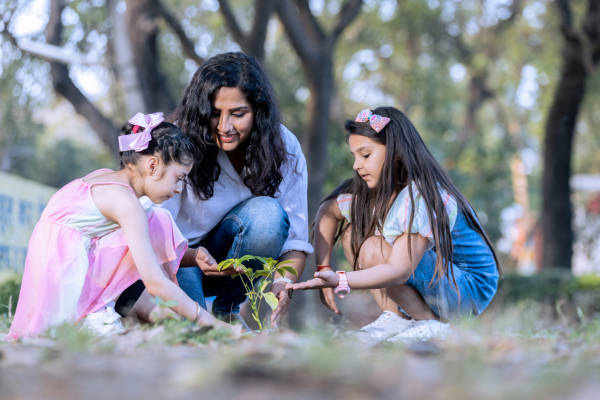How to maintain a healthy social life and relationships?
Discover the essential strategies and key elements to nurture strong social connections and build healthy relationships Learn how maintaining a thriving social life can reduce stress, enhance emotional well-being, and lead to a more fulfilling and balanced life
How to maintain a healthy social life and relationships? Building and nurturing meaningful social connections is essential for our overall well-being and happiness. It's not just about the number of friends or contacts you have but the quality of those relationships. Healthy social interactions contribute to reducing stress, enhancing emotional well-being, and creating a fulfilling life. In this article, we'll explore the key elements and strategies to maintain strong social connections and build healthy relationships, ensuring that you can lead a satisfying and balanced life.

Understanding the Importance of Maintaining a Healthy Social Life and Relationships
Why Healthy Social Life Matters
Having a healthy social life is crucial for overall well-being. It provides a sense of connection, support, and belonging. Healthy social interactions can reduce stress, boost emotional well-being, and contribute to a fulfilling life. Research consistently shows that individuals with strong social ties tend to live longer, healthier lives.
The Impact on Mental Health
Positive social connections play a pivotal role in mental health. Engaging with friends, family, and a broader social network can alleviate feelings of loneliness and depression. These connections offer emotional support and a sense of community, which are essential for maintaining sound mental health.
Physical Health Benefits
Believe it or not, your social life can also impact your physical health. Healthy relationships can lead to reduced stress levels, lower blood pressure, and a strengthened immune system. The emotional support from friends and loved ones contributes to physical well-being and may even lead to a longer life.
Enhancing Self-Esteem and Confidence
Positive social interactions can significantly enhance self-esteem and self-confidence. When you receive support and encouragement from those around you, it reinforces your self-worth. Healthy relationships provide a space where you can grow, learn, and thrive, contributing to improved self-esteem.
Preventing Isolation and Loneliness
Maintaining a healthy social life is a powerful way to prevent isolation and loneliness. Loneliness has been associated with various health issues, including heart disease and cognitive decline. Healthy relationships offer companionship, ensuring that you remain socially engaged and connected.
The Role of Relationships
Healthy relationships, whether romantic or platonic, are fundamental for a fulfilling life. They offer companionship, intimacy, and emotional support. Building and nurturing relationships is an ongoing process that requires time, effort, and effective communication. We'll explore this in detail in the following sections.
Building Strong Social Connections
The Art of Making New Friends
Creating strong social connections often begins with making new friends. Building new friendships involves being open to new experiences, engaging in social activities, and showing genuine interest in others. Common interests, shared experiences, and open communication play vital roles in forming new bonds.
Nurturing Existing Friendships
Nurturing your existing friendships is as crucial as making new ones. It requires time and effort to maintain the connection. Regular communication, checking in on one another, and being supportive during challenging times are key to keeping your relationships strong. The quality of your friendships greatly depends on the effort you put into them.
Family: The Bedrock of Social Connections
Your family is often the bedrock of your social connections. Maintaining healthy family relationships involves effective communication, resolving conflicts, and showing appreciation for one another. While family connections are often the most enduring, they also require effort to remain strong and supportive.
Joining Social Groups and Communities
Joining social groups and communities that align with your interests can be an effective way to build strong social connections. Whether it's a sports team, a book club, or a volunteer organization, these groups provide a ready-made social network with shared passions. Engaging in group activities fosters new relationships and enhances your sense of belonging.
The Role of Social Media
Social media has become a significant tool for building and maintaining social connections. Platforms like Facebook, Twitter, and Instagram enable you to stay in touch with friends and family, regardless of geographical distances. However, it's essential to balance online interactions with face-to-face connections for a more holistic social life.
Mentorship and Professional Relationships
Building strong social connections extends beyond personal life. Mentorship and professional relationships are essential for career growth and personal development. Seek out mentors who can guide you in your professional journey, and foster positive relationships with colleagues to create a supportive work environment.
The Role of Communication in Healthy Relationships
Effective Communication: The Foundation of Strong Relationships
Effective communication is the cornerstone of healthy relationships. It involves not only speaking but also active listening. Communication should be open, honest, and respectful. When individuals can express themselves clearly and understand each other's perspectives, it fosters trust and intimacy within the relationship.
Conflict Resolution and Compromise
In any relationship, conflicts are bound to arise. The ability to resolve conflicts and reach compromises is essential. Healthy communication skills, such as active listening and assertiveness, play a vital role in addressing issues constructively. Learning how to find common ground and make compromises ensures that conflicts do not become destructive forces in the relationship.
Expressing Feelings and Emotional Support
Communication in healthy relationships allows individuals to express their feelings and needs. It's a safe space to share vulnerabilities, joys, and concerns. When partners or friends actively engage in emotional support through communication, it strengthens the bond and creates a sense of security and understanding.
Quality Time and Connection
Spending quality time together is a form of communication that fosters connection. It involves more than just being physically present; it means being mentally and emotionally present. Engaging in activities, sharing experiences, and deepening your connection through meaningful conversations are all aspects of quality time that contribute to healthy relationships.
The Art of Empathy
Empathy is a critical element in communication within relationships. Understanding and acknowledging the feelings of your partner or friend create a sense of being heard and valued. Empathy involves being in tune with the emotions of others and responding with care and compassion, enhancing the quality of the relationship.
Digital Communication and Relationships
In today's digital age, digital communication plays a significant role in relationships. Text messages, emails, and video calls can help maintain connections over long distances. However, it's important to use digital communication thoughtfully and ensure it complements face-to-face interactions to avoid misunderstandings and miscommunications.
Quality Time: Nurturing Your Social Life
The Significance of Quality Time
Quality time is essential for nurturing your social life and relationships. It's more than just being physically present; it's about being fully engaged and present in the moment. Quality time provides opportunities for meaningful interactions, shared experiences, and building strong connections with others.
Fostering Connection through Activities
Engaging in activities together is an excellent way to spend quality time. Whether it's going for a hike, cooking a meal, or attending an event, shared activities create lasting memories and promote a deeper connection. The process of planning and participating in these activities adds an extra layer of bonding.
Open and Meaningful Conversations
Quality time often involves open and meaningful conversations. It's a space for expressing thoughts, feelings, and aspirations. These conversations promote understanding, empathy, and emotional support. Meaningful dialogues strengthen bonds and enhance the quality of relationships.
The Role of Unplugging
In the digital age, it's crucial to unplug during quality time. Disconnecting from electronic devices allows you to be fully present with your friends or loved ones. It fosters deeper connections, reduces distractions, and ensures that the time spent together is more focused and meaningful.
Creating Rituals and Traditions
Establishing rituals and traditions can be a powerful way to nurture your social life. Whether it's a weekly dinner with friends, an annual family vacation, or a monthly book club meeting, these routines create a sense of anticipation and togetherness. They offer opportunities for consistent, quality interactions.
Spontaneity and Adventure
While routines are valuable, spontaneity and adventure also play a crucial role in quality time. Embracing new experiences, unexpected outings, and adventurous activities infuse excitement and novelty into your social life. These moments of spontaneity can create lasting memories and strengthen connections.
Emotional Intelligence and Its Impact on Relationships
Understanding Emotional Intelligence
Emotional intelligence (EI) refers to the ability to recognize, understand, and manage our own emotions as well as the emotions of others. It plays a vital role in maintaining healthy relationships. Individuals with high emotional intelligence are more adept at perceiving and empathizing with the feelings of their partners or friends.
Empathy and Compassion
Empathy, a key component of emotional intelligence, allows individuals to connect on a deeper level with others. It involves recognizing and understanding the emotions of those around you. Empathetic individuals can offer support and compassion, which are essential for nurturing strong and healthy relationships.
Effective Conflict Resolution
Emotional intelligence enables individuals to navigate conflicts effectively. They can regulate their emotions, approach conflicts with a level head, and communicate their feelings without aggression or defensiveness. This skill is invaluable for resolving issues without causing harm to the relationship.
Enhancing Communication
High emotional intelligence enhances communication within relationships. It promotes open and honest discussions, active listening, and understanding. Individuals with EI are skilled at expressing themselves and interpreting the emotions conveyed by their partners or friends, leading to more meaningful and productive conversations.
Self-Awareness and Personal Growth
Emotional intelligence also encompasses self-awareness, which involves understanding one's own emotions and their impact on relationships. Self-aware individuals can identify their strengths and weaknesses in interactions, allowing for personal growth and improved relationship dynamics.
Building Trust and Intimacy
Trust and intimacy are fundamental in relationships, and emotional intelligence plays a crucial role in building and maintaining them. When individuals demonstrate empathy, effective communication, and conflict resolution, it fosters trust and intimacy. Partners or friends feel safe, valued, and connected on a deeper level.
Conflict Resolution: Fostering Healthy Relationships
The Role of Conflict in Relationships
Conflict is a natural part of any relationship, and it can arise from differences in opinions, values, or expectations. It's important to recognize that conflict, when managed constructively, can lead to growth and strengthen the relationship. Understanding the role of conflict is the first step in effective resolution.
Effective Communication in Conflict
Effective communication is the foundation of resolving conflicts in a healthy way. It involves active listening, expressing your thoughts and feelings, and seeking to understand the perspective of the other party. Open and honest communication allows both parties to share their concerns and work toward a resolution.
Active Listening and Empathy
Active listening is a critical component of conflict resolution. It means not only hearing the words spoken but also understanding the emotions and concerns behind them. Empathy, the ability to see the situation from the other person's perspective, plays a key role in resolving conflicts with compassion and understanding.
Finding Common Ground
Conflict resolution often involves finding common ground or compromise. It's important to identify shared goals and values that both parties can agree upon. Seeking mutually beneficial solutions ensures that conflicts do not result in winners and losers but instead contribute to the strength of the relationship.
Constructive Problem-Solving
Healthy conflict resolution incorporates constructive problem-solving techniques. This may include brainstorming, evaluating different solutions, and choosing the most suitable course of action. Problem-solving helps address the root causes of the conflict and prevents recurring issues.
Forgiveness and Moving Forward
After a conflict is resolved, forgiveness and moving forward are essential steps. Forgiveness allows both parties to let go of resentment and rebuild trust. It's important to acknowledge that conflicts are part of any relationship, and learning from them can lead to growth and improved understanding.
FAQs: Common Questions About Maintaining a Healthy Social Life and Relationships
Q1: Why is a healthy social life important for overall well-being?
A1: A healthy social life is vital for overall well-being because it provides a sense of connection, support, and belonging. It reduces stress, enhances mental and emotional well-being, and contributes to a fulfilling life. Research shows that strong social ties lead to longer, healthier lives.
Q2: How can I make new friends and expand my social circle?
A2: Making new friends involves being open to new experiences, participating in social activities, and showing genuine interest in others. Engaging in shared activities, volunteering, and joining social groups aligned with your interests are effective ways to expand your social circle.
Q3: What role does emotional intelligence play in relationships?
A3: Emotional intelligence is crucial for healthy relationships. It involves recognizing, understanding, and managing emotions, both your own and those of others. High emotional intelligence promotes empathy, effective communication, conflict resolution, and the building of trust and intimacy in relationships.
Q4: How do I resolve conflicts without damaging my relationships?
A4: Effective conflict resolution requires open and honest communication, active listening, empathy, and finding common ground. Avoid aggression and defensiveness, and instead focus on addressing issues constructively. Constructive problem-solving and forgiveness are key for resolving conflicts without harming relationships.
Q5: Can digital communication substitute for face-to-face interactions?
A5: Digital communication can complement face-to-face interactions, but it cannot fully substitute them. While it helps maintain connections over long distances, in-person interactions offer deeper connections and a richer understanding of emotions and cues that are often missed online.
Q6: How can I balance my social life with daily responsibilities?
A6: Balancing your social life with daily responsibilities requires effective time management, setting realistic goals, and creating routines. Communicate your needs with those around you, prioritize self-care, and be flexible and adaptable when unexpected events occur.
Q7: What are the benefits of spending quality time with loved ones?
A7: Spending quality time fosters deeper connections, creates lasting memories, and promotes a sense of togetherness. It allows for meaningful interactions, shared experiences, and stronger relationships with loved ones.
Q8: How can I build trust and intimacy in my relationships?
A8: Building trust and intimacy involves effective communication, empathy, active listening, and conflict resolution. When you create an environment of openness, support, and understanding, trust and intimacy naturally develop within your relationships.
Q9: Is it possible to repair damaged relationships through effective communication?
A9: Yes, damaged relationships can be repaired through effective communication. Acknowledge the issues, express your feelings, and listen to the other party's perspective. Finding common ground and working together to address the problems can lead to the mending of relationships.
Q10: What are some rituals or traditions that can strengthen social connections?
A10: Rituals and traditions, such as regular family dinners, annual vacations, or monthly gatherings with friends, create a sense of togetherness and anticipation. These routines foster consistency and meaningful interactions, strengthening social connections over time.










